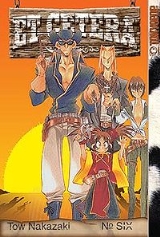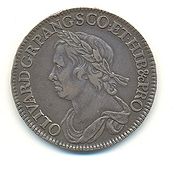
Et cetera
Encyclopedia

Latin
Latin is an Italic language originally spoken in Latium and Ancient Rome. It, along with most European languages, is a descendant of the ancient Proto-Indo-European language. Although it is considered a dead language, a number of scholars and members of the Christian clergy speak it fluently, and...
expression that means "and other things", or "and so forth". It is taken directly from the Latin
Latin
Latin is an Italic language originally spoken in Latium and Ancient Rome. It, along with most European languages, is a descendant of the ancient Proto-Indo-European language. Although it is considered a dead language, a number of scholars and members of the Christian clergy speak it fluently, and...
expression which literally means "and the rest (of such things)" and is a loan-translation of the Greek
Greek language
Greek is an independent branch of the Indo-European family of languages. Native to the southern Balkans, it has the longest documented history of any Indo-European language, spanning 34 centuries of written records. Its writing system has been the Greek alphabet for the majority of its history;...
"καὶ τὰ ἕτερα" (kai ta hetera; "and the other things". The more usual Greek form is "καὶ τὰ λοιπά": "and the remainder"). Et means "and"; cētera means "the rest".
Spellings and usages etc.
The one-word spelling "etcetera" is commonly used and is accepted as correct by many dictionaries. It is also sometimes spelled et caetera, et coetera or et cœtera and is often abbreviated to etc. or &c.. Archaic abbreviations, most commonly used in legislation, notations for mathematics or qualifications, include &/c., &e., &ct., and &ca.. Note that the ampersandAmpersand
An ampersand is a logogram representing the conjunction word "and". The symbol is a ligature of the letters in et, Latin for "and".-Etymology:...
is a ligature of "et".
The phrase et cetera is often used to delete the logical continuation of some sort of series of descriptions. For example, in the following expression…
- We will need a lot of bread: wheat, granary, wholemeal, etc.
… the "etc." stands for "and other types of bread". It is an error to say or write "and etc." in which the word "and" would be redundant. This would translate as "and and the rest".
Typically, the abbreviated versions should always be followed by a full stop
Full stop
A full stop is the punctuation mark commonly placed at the end of sentences. In American English, the term used for this punctuation is period. In the 21st century, it is often also called a dot by young people...
(period), and it is customary—even in British English
British English
British English, or English , is the broad term used to distinguish the forms of the English language used in the United Kingdom from forms used elsewhere...
where the serial comma
Serial comma
The serial comma is the comma used immediately before a coordinating conjunction preceding the final item in a list of three or more items...
is typically not used—that "etc." always be preceded by a comma. Thus:
- A, B, C, etc.
not:
- A, B, C etc
At the end of a list ", et cetera" or ", etc." may be indicated by "…" as in:
- We need a lot of fruit: apples, bananas, oranges… for the luncheon.
At the end of a sentence it should be followed by a period as in ", et cetera." or ", etc." or indicated by three periods (an ellipsis
Ellipsis
Ellipsis is a series of marks that usually indicate an intentional omission of a word, sentence or whole section from the original text being quoted. An ellipsis can also be used to indicate an unfinished thought or, at the end of a sentence, a trailing off into silence...
) as in:
- We need a lot of fruit: apples, bananas, oranges...
Some publishing house styles (particularly in Britain) no longer require either the preceding comma or the following stop.
Some editors consider that “and the rest” implies a finite list thus distinguishing “etc.” from “and the like”, “and so forth” and so on preferring “apples, bananas, oranges and so on” to “apples, bananas, oranges, etc." unless the greengrocer
Greengrocer
A greengrocer or fruiterer is a retail trader in fruit and vegetables; that is, in green groceries. Greengrocer is primarily a British and Australian term, and greengrocers' shops were once common in suburbs, towns and villages...
supplies a list of fruit to choose for the luncheon.
Pronunciation error
It is often mispronounced as "ex cetera", and subsequently abbreviated as "ect".Usage by monarchs
EuropeEurope
Europe is, by convention, one of the world's seven continents. Comprising the westernmost peninsula of Eurasia, Europe is generally 'divided' from Asia to its east by the watershed divides of the Ural and Caucasus Mountains, the Ural River, the Caspian and Black Seas, and the waterways connecting...
an monarch
Monarch
A monarch is the person who heads a monarchy. This is a form of government in which a state or polity is ruled or controlled by an individual who typically inherits the throne by birth and occasionally rules for life or until abdication...
s, who sometimes have lengthy titles due to dynastic claims to territories accumulated over the centuries (and also as a matter of prestige), often shorten their full titles by concluding it with "et cetera"; even then the phrase would often be repeated in order to emphasize the monarchs' grandeur.
A prime example of this usage would be from Tsar
Tsar
Tsar is a title used to designate certain European Slavic monarchs or supreme rulers. As a system of government in the Tsardom of Russia and Russian Empire, it is known as Tsarist autocracy, or Tsarism...
Nicholas II of Russia
Nicholas II of Russia
Nicholas II was the last Emperor of Russia, Grand Prince of Finland, and titular King of Poland. His official short title was Nicholas II, Emperor and Autocrat of All the Russias and he is known as Saint Nicholas the Passion-Bearer by the Russian Orthodox Church.Nicholas II ruled from 1894 until...
, who traditionally began his proclamation
Proclamation
A proclamation is an official declaration.-England and Wales:In English law, a proclamation is a formal announcement , made under the great seal, of some matter which the King in Council or Queen in Council desires to make known to his or her subjects: e.g., the declaration of war, or state of...
s with his shortened (but still long) title: "We
Pluralis majestatis
The majestic plural , is the use of a plural pronoun to refer to a single person holding a high office, such as a monarch, bishop, or pope...
, Nicholas II, By the Grace of God
By the Grace of God
By the Grace of God is an introductory part of the full styles of a monarch taken to be ruling by divine right, not a title in its own right....
, Emperor and Autocrat of All the Russias, King of Poland, Grand Duke of Finland, et cetera, et cetera, et cetera".
In the 1956
1956 in film
The year 1956 in film involved some significant events.-Events:* October 5 - The Ten Commandments opens in cinemas and becomes one of the most successful and popular movies of all time, currently ranking 5th on the list of all time moneymakers * February 5 - First showing of documentary films by...
film The King and I
The King and I (1956 film)
The King and I is a 1956 musical film made by 20th Century Fox, directed by Walter Lang and produced by Charles Brackett and Darryl F. Zanuck. The screenplay by Ernest Lehman is based on the Richard Rodgers and Oscar Hammerstein II musical The King and I, based in turn on the book Anna and the King...
, Yul Brynner
Yul Brynner
Yul Brynner was a Russian-born actor of stage and film. He was best known for his portrayal of Mongkut, king of Siam, in the Rodgers and Hammerstein musical The King and I, for which he won an Academy Award for Best Actor for the film version; he also played the role more than 4,500 times on...
, who played King Mongkut of Siam, repeatedly used the phrase "et cetera, et cetera, et cetera" to characterize the King as wanting to impress with his great knowledge of many things and his importance in not having to detail them. This was based upon the usage in the book Anna and the King of Siam
Anna and the King of Siam (book)
Anna and the King of Siam is a 1944 semi-fictionalized biographical novel by Margaret Landon.In the early 1860s, Anna Leonowens, a widow with two young children, was invited to Siam by King Mongkut , who wanted her to teach his children and wives the English language and introduce them to British...
which related the real king's playful interest in numerous things, with the phrase, "&c, &c".
Similar Latin expressions
- In lists of people, et alii (abbreviated as et al., meaning "and others") is used in place of etc.
- In lists of places, et alibi may be used, which is also abbreviated et al. et alibi means "and elsewhere."
- In literature references, et sequentes (abbreviated et seq.) is used to indicate that only the first portion of a reference is given explicitly, with broad reference to the following passages which logically follow in sequence to the explicit reference. Hence "Title VII, Section 4, Subsection A, Paragraph 1, et seq." might refer to many subsections or paragraphs which follow Paragraph 1. Legal briefs and legislative documents make heavy use of et seq.
Other uses
"Et cetera" can be used as a type of cadigan, for example one military expert described the effect of certain explosives on battle tanks as "blowing off their et ceteras."In other languages
- Spanish- etcétera
- French- et caetera
- Italian- eccetera
- German- und so weiter
- Dutch- enzovoort
- Polish- i tak dalej
- Czech- a tak dále
See also
- EllipsesEllipsisEllipsis is a series of marks that usually indicate an intentional omission of a word, sentence or whole section from the original text being quoted. An ellipsis can also be used to indicate an unfinished thought or, at the end of a sentence, a trailing off into silence...
(…) may be used for a similar function. - List of Latin phrases

